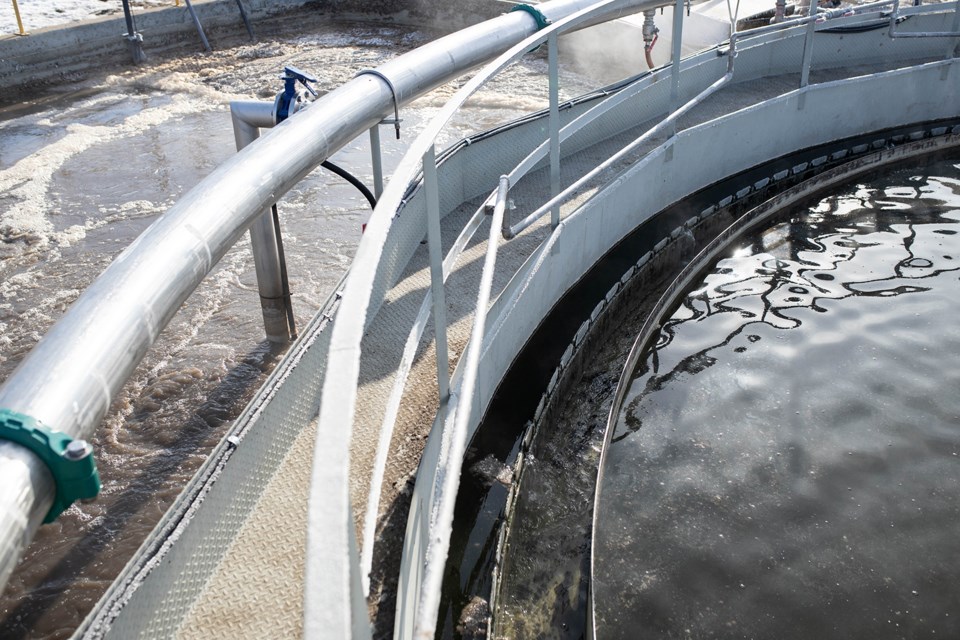ST. PAUL - First reading of Proposed Bylaw 2022-01: Water & Sewer was approved by Town of St. Paul council on Jan. 10, reflecting discussions that took place regarding the town's budget.
A number of changes are included throughout the bylaw, including definition changes, clarifying irregularities, timelines, fees, and more.
"There is a lot of red (changes)," said CAO Steven Jeffery, when presenting the bylaw to council.
One issue that has been addressed is ensuring it's clear when rental properties are being considered.
"The onus is always on the owner," said Mayor Maureen Miller, adding, there are challenges that arise when renters don't do meter readings, for example. But, the responsibility always goes back to the homeowner.
Section 12.1 in the new draft bylaw states: "All utility accounts will remain in the name of the property owner and copied to the tenant. When a property owner rents or leases a premise to which the Town provides services, all utility accounts shall remain in the name of the property owner."
The section that speaks to disconnection of services was brought up by Jeffery during the meeting. He specifically pointed to section 5.2, which read as: "Prior to discontinuing Utility Services for a Property pursuant to Section 5.1 a-c, the Town shall endeavour to provide the Consumer with a minimum 14 day notice by mail, or posting a notice at the Property, or delivering a notice to the Property."
Jeffery wanted to clarify the discussion around door hangers and council's decision to step away from using the form of notification when residents haven't done meter readings. He noted that he felt there was still value in leaving notice at the door if it was specific to discontinuation of service.
Coun. Brad Eamon said the terms door knocker or door hanger still scares him, due to issues that have been seen in the past.
"Door hangers to me don't work," said Eamon.
Jeffery affirmed that the door hangers would not be the only way to notify residents. He added that not all homes or renters have access to a mailbox. Using email was brought up, to which administration felt it could be added into the how residents are notified. Phone numbers are also included in application forms for utility services regarding rental properties.
While the revised bylaw does not have to be advertised, Coun. Nathan Taylor recommended the bylaw be advertised to the public, since the document is "fundamental" to residents.
Changes to outstanding accounts were also made, with a timeline made clear. After 14 days, a 2.5 per cent interest charge is added to the amount owing. After 45 days a disconnection notice is given. After 60 days, water is disconnected. After 180 days, the process to transfer the unpaid amount to the tax roll account begins.
Second and third readings of the revised bylaw are expected to occur at council's next regular meeting, Jan. 24.
Fees changed
According to Schedule A - Utility Rates & Charges, the Consumption Charge for sewer will increase from $0.80 per cubic meter to $1.20 per cubic meter.and from $0.36 per 100 gallon to $0.55 per 100 gallon.
When speaking about the interim budget in late 2021, Jeffery said an increase in wastewater fees was included because of the recent upgrade at the wastewater treatment plant, and the realization that the Town isn't capturing enough revenue to cover added expenses.
The average household could see an increase of about $8/month on their bills, explained Jeffery, who used his own household as an example of an average household with five people.
Consumption charges for water will remain the same in the new bylaw, which is $1.60 per cubic meter nd $0.73 per 100 gallon. The consumption charges are on top of the flat rate fees for sewer and water, which also remained the same.
A section for penalties is also included in the bylaw. Of note, the penalty for not complying with the Bylaw was increased from $500 to $5,000.
Penalties and any outstanding amounts must be paid in full before the Town restores service to a property that was previously disconnected.
Other changes
A portion in the bylaw previously labelled as "private waterworks" was stuck out, and replaced with a portion called "New service connections outside of the boundaries of the Town of St. Paul."
This portion now reads: "An individual who desires to connect to the Town’s water and/or sewer system must contact the Chief Administrative Officer in writing to submit a request for Council’s consideration. A new service connection is not necessarily guaranteed. An individual shall not proceed with the construction of a water and/or sewer service until such time that the individual’s application has been approved in writing by way of Agreement signed by the Chief Administrative Officer or designate."
In the sanitary sewer portion of the bylaw, the words "oil" and "grease" were added to section 4.1 (b), which will read: "No person shall throw, deposit or leave in/or upon any Town sewer or any trap, basin, grating, manhole or other appurtenance of any Town sewer, any butcher's offal, garbage, litter, manure, rubbish, sweepings, oil, grease, sticks, stones, bricks, earth, gravel, dirt, mud, hay, straw, twigs, leaves, papers, rags, cinders, ashes, or refuse matter of any kind, except feces, urine, the necessary waste paper and slops properly discharged through a house sewer into a Town sewer."



